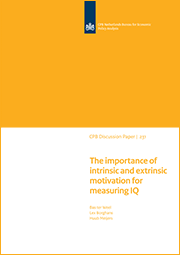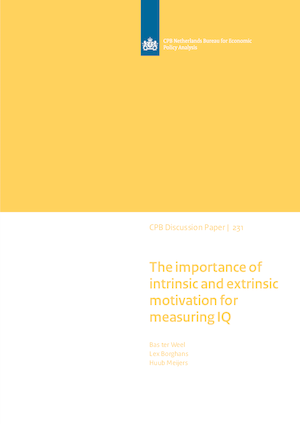January 30, 2013
The importance of intrinsic and extrinsic motivation for measuring IQ
This research provides an economic model of the way people behave during an IQ test. We distinguish a technology that describes how time investment improves performance from preferences that determine how much time people invest in each question.

We disentangle these two elements empirically using data from a laboratory experiment. The main findings is that both intrinsic (questions that people like to work on) and extrinsic motivation (incentive payments) increase time investments and as a result performance. The presence of incentive payments seems to be more important than the size of the reward. Intrinsic and extrinsic motivation turn out to be complements.
Downloads
Authors
Bas ter Weel
Lex Borghans (Maastricht University)
Huub Meijers (Maastricht University)
